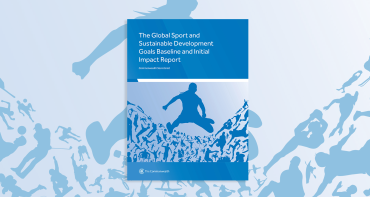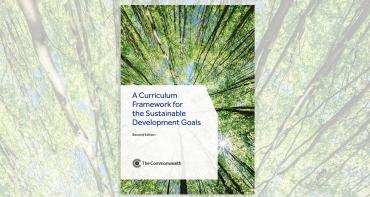In February 2018 education ministers will meet in Fiji to discuss solutions to some of the Commonwealth’s most pressing education challenges, including low enrolment rates in preschool, primary and secondary schools, low adult literacy and persisting gender disparities in education.

In February 2018 education ministers will meet in Fiji to discuss solutions to some of the Commonwealth’s most pressing education challenges, including low enrolment rates in preschool, primary and secondary schools, low adult literacy and persisting gender disparities in education. It will be the first Conference of Commonwealth Education Ministers (CCEM) since the global community adopted the 2030 agenda for sustainable development. The meeting will give education ministers the opportunity to agree on effective strategies to help individual countries achieve Sustainable Development Goal (SDG) 4 - inclusive and quality education for all.
The ministers will share knowledge and good practices as well as collaborate with other groups attending the parallel
The Commonwealth education conference has been taking place every three years since 1959, when the first meeting was held in Oxford. It is the second largest meeting organised by the Commonwealth Secretariat after the Commonwealth Heads of Government Meeting (CHOGM).
The theme
The theme for 20CCEM is Sustainability and Resilience: Can Education Deliver? It includes three subthemes:
- Education for sustainable development: Education as a key enabler for sustainable development- skills development and transitioning youth to decent work.
- Building resilience through education: Climate change and the curriculum - displacement and migration due to climate change and the challenges faced by small and atoll islands (including the role of education, traditional knowledge and local culture in building climate resilience).
- Education governance & management: Strengthening the teaching profession and school management - issues of quality and equity; financing of education; societal barriers (including drug abuse and internet/social media); and advocacy for education strategies across the SDGs.
The Integrated Partners Forum
The forum is essential for students, teachers, higher education leaders and civil society organisations. It will give these groups an opportunity to contribute to the declaration that will be agreed at the ministerial meeting. This declaration will be presented to Commonwealth heads of government at their summit in April 2018 in London.
Keynote speakers

Rt Hon Helen Clark
Former Prime Minister of New Zealand and former administrator of the United Nations Development Programme (UNDP)
The Right Honourable Helen Clark was the second woman to serve as Prime Minister of New Zealand, and the first to have won office at an election in the country. She was Prime Minister from 1999 to 2008.
During her time in office, other women also held many prominent elected and appointed offices in New Zealand. As a female Head of Government, Clark became and remains a member of the Council of Women World Leaders. Read more
HE President Jakaya Kikwete
Former President of Tanzania and Member of the International Commission on Financing Global Education Opportunity
His Excellency President Jakaya Mrisho Kikwete was elected the fourth President of the United Republic of Tanzania in 2005 and re-elected for a second term in 2010.
President Kikwete is a graduate of economics from the University of Dar es Salaam. With more than 30 years of public service, he joined the Tanzania Cabinet in 1988 and held several ministerial posts. Read more
HE Anote Tong
Former President of the Republic of Kiribati
His Excellency Anote Tong is the former three-term president of the Republic of Kiribati. He left public office after a 13-year presidency in 2016 and retired from politics.
During his period as head of state, President Anote Tong became a strong climate change advocate and has continued his work to build worldwide awareness of its potentially devastating impact. Read more




